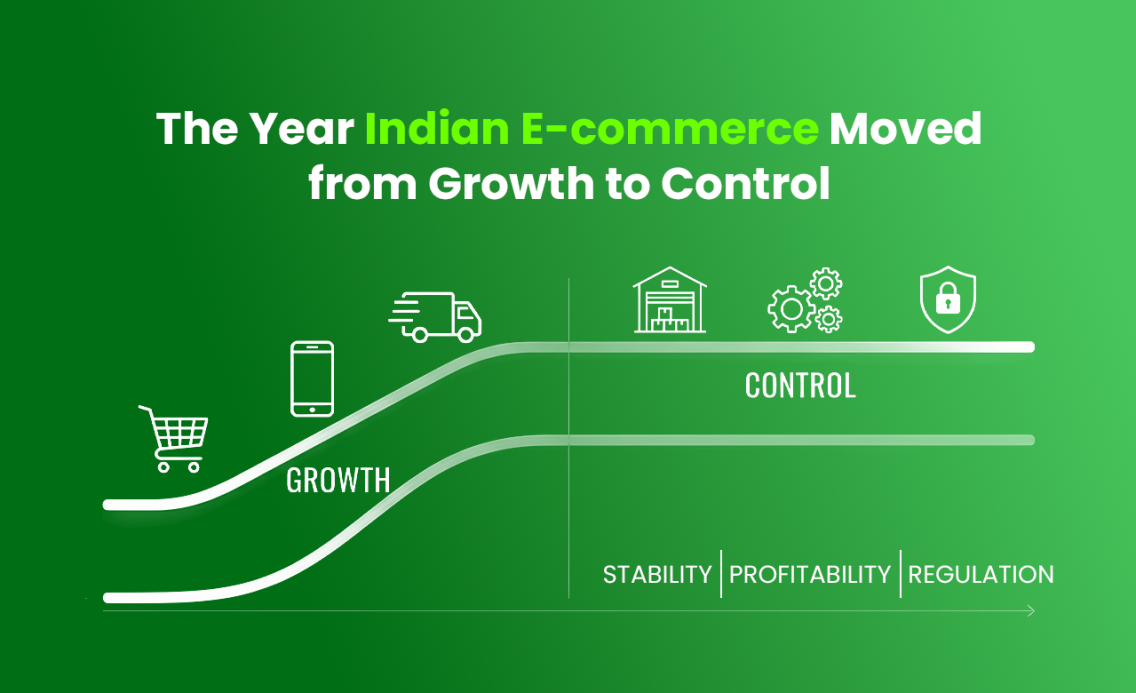As per a report By IHL, ineffective inventory management costs eCommerce businesses a whopping $1.75 trillion in lost revenue every year. Now that nearly sums up why you need to manage your inventory in order to seamlessly operate your business. We will not leave you hanging over these figures though.
So, here we are taking you on a detailed dive into the advantages of inventory management that you should be acquainted with.
Before we start with it here is a quick description of what exactly inventory management is.
What is inventory management?
Inventory management is simply keeping track of your inventory from its procurement to its dispatch. An effective inventory management process gives you complete visibility of your stock movement within the supply chain.
What are the advantages of inventory management?
1. Improves Accuracy
Real-time inventory tracking helps you improve inventory management and ensures that you have optimal stock available to fulfill orders. However, for most retail businesses, the inventory accuracy is merely 63%. With accurate inventory tracking, you can eliminate over-stocking, and in turn, reduce the cost and manual efforts required in holding it.
There are many ways to improve inventory efficiency. Some of the most proven methods include:
- Using modern inventory management tools that can help you improve inventory management, and streamline supply chain management by closing down warehouse locations (if your business can operate without them) and cutting on the costs associated.
- Implementing just-in-time or lean inventory strategy to reduce inventory holding costs while ensuring timely order fulfillment.
Put simply, the benefits of the inventory management techniques and investing in robust inventory management software is that it gives you agility, optimizes costs.
2. Reduces costs
Improving inventory management efficiency avoids chances of errors, and fewer errors eventually require fewer resources spent on fixing errors.
Moreover, organized inventory management avoids overstocking and reduces the money spent on holding costs. The inventory management system notifies warehouse managers to timely replenish stock and avoid stock-outs.
In short, smart inventory management eliminates the need for large working capital, improves cash flow, and provides you with the required finances to fund payroll, product development, or any other business activity.
3. Saves Time
You can automate your inventory management process to save time in inventory forecasting and optimize the pick-pack process by leveraging robotics and AI. As you automate these tasks, you provide employees with ample time to work on more important tasks and devise strategies for business growth.
4. Improves Business Planning
Using an in-house inventory management strategy can help you get the business insights required to scale your business or improve operations further.
Implementing features like barcode scanning and using a central data warehouse enables you to easily transfer data and monitor the happenings of your business.
This will help you answer questions like:
- What is the flow of your inventory and what all customers are you serving?
- How can you make your business processes better with agile inventory?
- What do customers want and expect from your business and how to implement that in your marketing & operations?
With easy access to business insights, you can devise better marketing and outreach strategies for increasing conversions and driving business profitability.
“Look from any perspective, the benefits of inventory tracking and management are endless. They have a lot to offer a business keeping a steady growth. Finding a solution that fits your business requirements is the key. When you do, there is no limit to what you can achieve with your resources.”
5. Improves Customer Service
To sustain in today’s competitive eCommerce space it is vital to provide your customers with a good shopping experience. Happy customers not only increase the chances of repeat purchases but can help you drive more conversions with good reviews and word-of-mouth publicity.
With effective inventory management, you can quickly fulfill accurate and complete customer orders.
Now to make the most out of the above-mentioned advantages of inventory management, modern businesses need to invest in an Inventory Management System (IMS).
.webp)
How to select the Right Inventory Management System (IMS)
Your inventory management system should help you easily keep a track of inventory, streamline your warehouse operations and improve order fulfillment.
Before investing in an IMS you should check whether it has the following key features or not:
1. Inventory Tracking
Your team should always have easy access to tracking raw materials and finished goods status within the supply chain.
Your IMS should provide you with real-time stock updates and reduce the need for manual input required for inventory tracking.
2. Barcode Scanning
Barcode scanning helps you avoid manual data errors. It also improves inventory accuracy and speeds up stock replenishment.
3. Integrations
For successfully implementing automation and optimizing supply chain management, all your backend applications need to integrate with your IMS.
A robust IMS has integrations with leading eCommerce marketplaces, POS systems (for offline orders), storefronts, logistics partners, and accounting platforms. This improves communication across all business systems, in turn improving business operations.
4. Easy-to-use System and Customer Support
Managing warehouse operations, tracking multi-channel orders, etc via a system can be a challenging task to learn initially. If it takes your team hours to understand the system, you are further complicating your business process and incurring costs both in the short and long term.
An easy-to-use system can help your team quickly understand how to use the system and get going with their tasks.
Besides this, your team should also have access to customer support that can resolve your queries in the shortest time possible, and avoid bottlenecks in supply chain management.
5. System Updates
Your inventory management system should be able to upgrade and add new functionalities that meet your specific business requirements for smooth functioning.
Why Should you Choose a Cloud-based Inventory Management System?
With traditional IMS, inventory management can be a time-consuming, repetitive and challenging process that is prone to manual errors. A cloud-based system helps you seamlessly keep a track of inventory movement and optimize operations.
Here are the key reasons for shifting to a cloud-based IMS:
- It continuously updates stock details. As discussed earlier this has many benefits like improving inventory accuracy, ensuring you have optimal stock available at all times, reducing costs, and streamlining operations.
- It helps you avoid errors. A cloud-based software updates data continuously eliminates the risk of duplication or missed sales orders. Fewer errors simply mean smooth business operations and profitability in the long run.
- It ensures data security and safety. All your data is stored securely in a cloud and is updated instantly whenever any changes are made. This allows you to easily access current inventory data and historical data whenever required.
- It provides you with extensive reports and analysis that can help you easily track inventory details, cost details, product trends, etc, eventually helping you devise better business strategies.
- It streamlines the entire process. Cloud-based software integrates all backend platforms and ensures that all business units like Finance Team, Purchase Team, Warehouse Team, Sales Team, etch can easily access business information.
Frequently Asked Questions
What are the advantages and disadvantages of having excess inventories?
Advantages-
- With excess inventory in the warehouse, you can set up wholesale pricing to sell.
- You meet customer demands at all times
- Timely order fulfillment
Disadvantages-
- Higher Storage Costs
- Higher chances of inventory loss and damage
- Stuck capital
What is an inventory management system/software?
It is a software or a platform that helps you keep track of your entire inventory movement across the supply chain.
Are there any disadvantages of inventory management systems?
There could be some disadvantages for smaller organizations in the beginning but we still recommend an inventory management system in place for faster growth.
Some of the disadvantages could be:
- Set up costs
- Time-consuming process for lesser workforce
- The complexity of the system
Why is inventory management important for an organization?
Inventory management is absolutely essential to streamline your day-to-day operations. Keeping track of your inventory and orders prevents any potential losses. You can only focus on business growth if you are not worried about your inventory. While it might work for you smaller businesses in the initial stages to overlook it but as you grow larger, without efficient inventory management, you will incur losses.
Are you looking for an omnichannel inventory management solution with integrated B2B order management for your eCommerce business? Drop us a line at care@easyecom.io or directly sign up for a demo here.
.webp)
.png)












